ABOUT
OUR FOCUS
Development and application of innovative techniques for biomarker in human diseases.
We believe that utilizing molecular imaging tools we can uncover abnormalities in cell metabolism and assess treatment efficacy.
OUR APPROACH
Combining principles from bioengineering, chemistry, and physics, we tackle biological challenges through innovative solutions. Application of Magnetic Resonance (MR) molecular imaging methods to investigate biochemical pathways and in vitro, in vivo and in innovative in bioengineered chip systems.

OUR METHODS
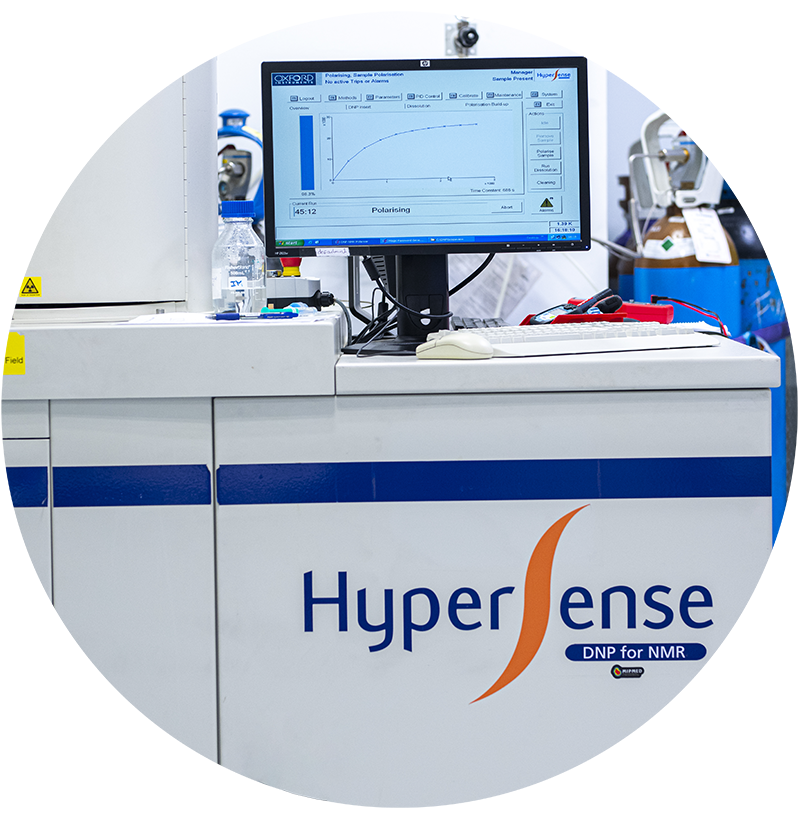
Hyperpolarised NMR (HP-NMR)
At the forefront of molecular imaging, our team specializes in hyperpolarized MR techniques, which amplify NMR signals over 10,000 times. This advancement allows real-time, non-invasive observation of molecular processes within a broad spectrum of biological systems, offering unprecedented insights into dynamic biological phenomena in real time. In our group we work with two HP methods: dissolution Dynamic nuclear polarization (dDDNP) and Parahydrogen Induced Polarization (PHIP).
Magnetic Resonance (MR) Imaging
Building upon the established clinical utility of MR imaging (MRI) for non-destructive tissue analysis, our work extends to MR spectroscopic imaging, which offers chemical specificity. This enables direct correlation between chemical compounds and biological events across various biological samples, including biofluids, cells, tissues, animal models, and clinical patients.
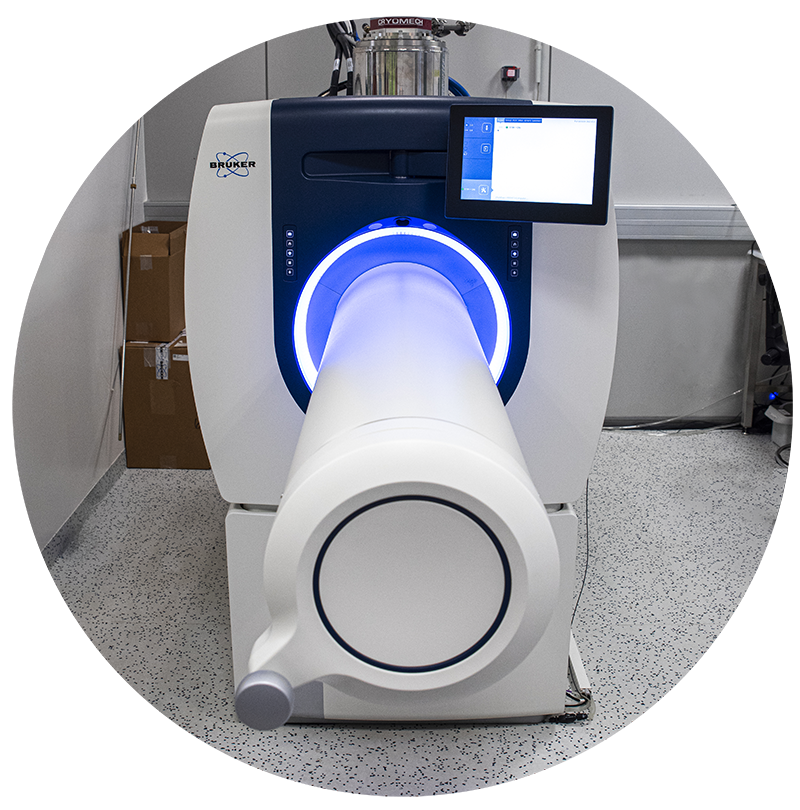
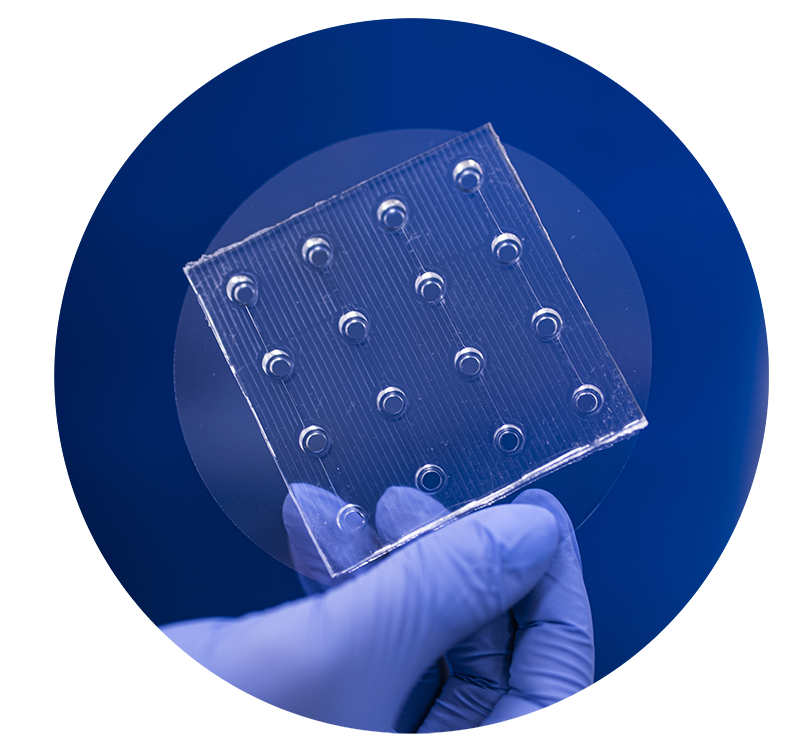
Microfluidic platforms
Microfluidic platforms, especially lab-on-a-chip devices, are revolutionizing the study of metabolism in disease by offering a compact and efficient means to analyze biological samples. These chips integrate intricate networks of microchannels and chambers, allowing for precise control and manipulation of small fluid volumes. A significant advantage of these platforms is their ability to accommodate multiple samples simultaneously for a single measurement, such as Magnetic Resonance Imaging (MRI). This unique design not only enhances throughput and reduces sample consumption but also enables high-resolution and multiplexed metabolic analysis. Consequently, microfluidic chips are becoming indispensable tools in biomedical research, providing valuable insights into disease mechanisms and facilitating the identification of metabolic biomarkers.
Metabolomics
Metabolomics is the comprehensive study of metabolites, the small molecules involved in metabolic processes within a biological system. Analysis of metabolites using NMR spectroscopy reveals insights into the biochemical activities occurring in cells, tissues, or organisms. This field is particularly useful for biomarker identification associated with particular diseases. Identifying these biomarkers can improve disease diagnosis, prognosis, and the development of personalized treatment strategies.
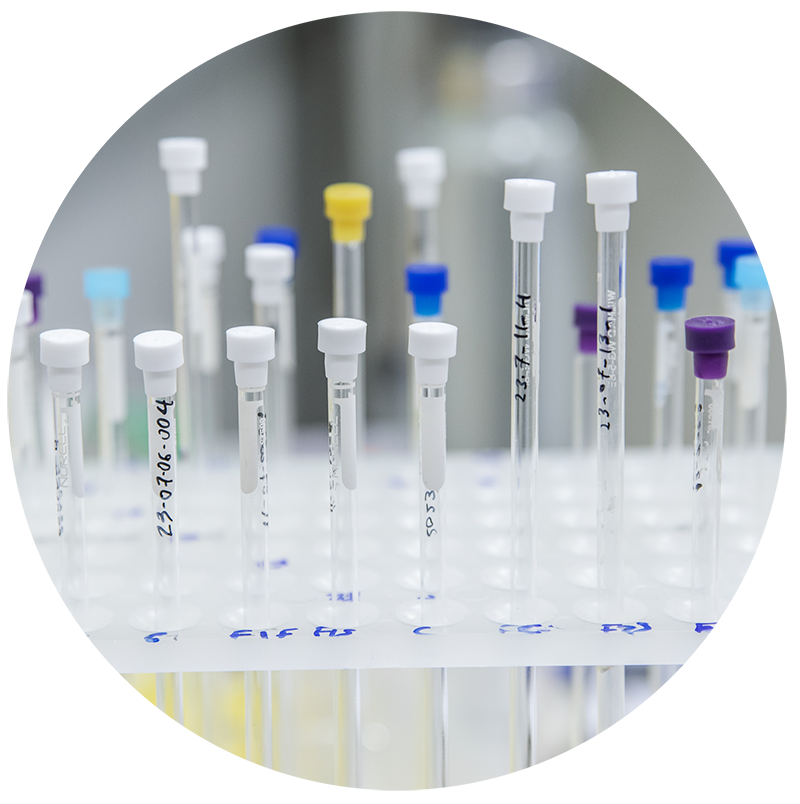
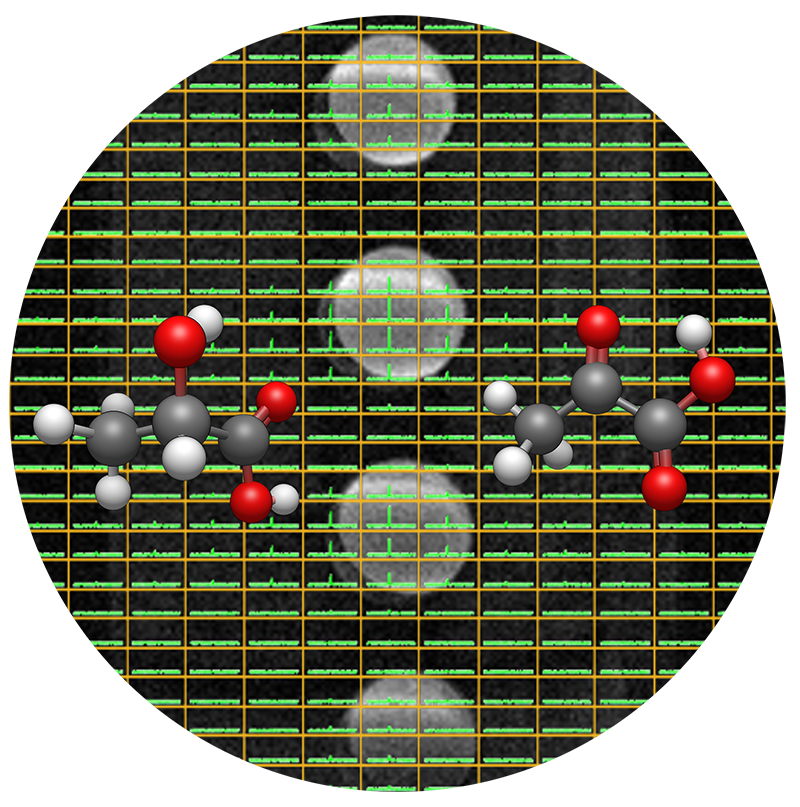
Computer Modelling of biological systems
By using the law of mass action, it is possible to model different cellular processes in a deterministic manner, and hence, describe these systems at a population level. These models can describe a wide range of processes, from gene expression and regulation to enzyme kinetics and particles movements thanks to membrane transporters.
STAFF
All group members:
PROJECTS
| INTERNATIONAL PROJETCS | FINANCER | PI |
|---|---|---|
| BLOC · Benchtop NMR for Lab-on-Chip (2020 – 2022) | European Commission, FET OPEN | Irene Marco |
| NATIONAL PROJECTS | FINANCER | PI |
|---|---|---|
| Analisis metabolico en tiempo real de modelos de cultivo de celulas 3d de la enfermedad del higado graso no alcoholico: organos en un chip y resonancia magnetica nuclear (2020 – 2021) | MINECO, Acciones Dinamización Europa Investigación/EIN2020-112209 | Irene Marco |
| Junior Leader Programe (2018 – 2022) | Obra Social La Caixa, Junior Leader Program | Irene Marco |
PUBLICATIONS
For a list of publications prior to joining IBEC, visit the Google Scholar.
NEWS
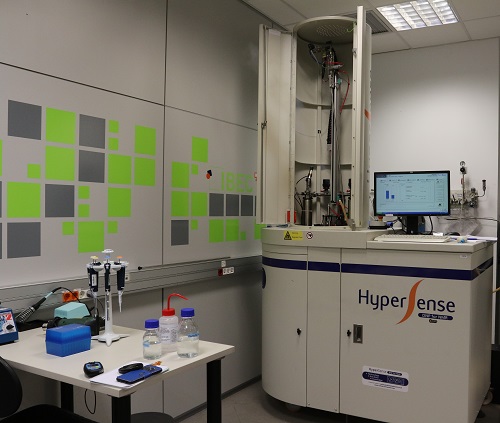
L’IBEC acull una tecnologia de ressonància única a Espanya per estudiar el metabolisme cel·lular
Recentment, s’ha instal·lat a l’IBEC un polaritzador de polarització nuclear dinàmica (DNP, per les sigles en anglès) per a ressonància magnètica nuclear (RMN), que és l’únic en funcionament a Espanya i un dels pocs a tot Europa. Aquest equip pot millorar el senyal fins a 10.000 vegades respecte a un procediment convencional d’RMN i permet estudiar el metabolisme cel·lular en temps real.
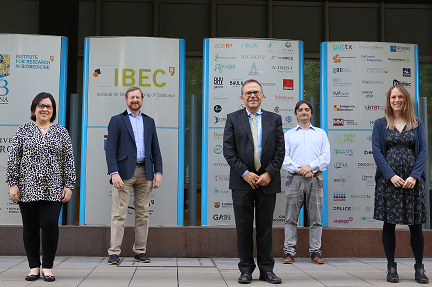
Neix Vitala, un Spin-off de l’IBEC que ofereix solucions innovadores i més ètiques per a la investigació en salut
Vitala Technologies, una empresa de base biotecnològica nascuda a l’Institut de Bioenginyeria de Catatalunya (IBEC), oferirà solucions innovadores per a l’anàlisi de fàrmacs durant la seva fase de desenvolupament, així com la possibilitat de conèixer de manera personalitzada la resposta del pacient a un determinat tractament abans de ser subministrat.
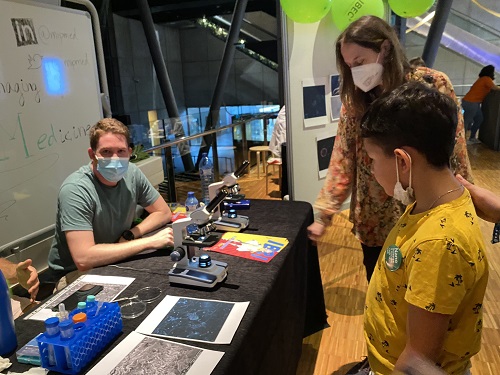
Els investigadors de l’IBEC participen a la “Nit europea de la recerca”
El passat divendres 24 de setembre va tenir lloc la “Nit europea de la recerca” un esdeveniment que se celebra a escala europea en més de 300 ciutats de 30 països diferents. L’objectiu d’aquesta jornada és donar a conèixer la diversitat de la ciència i el seu impacte en la vida quotidiana dels ciutadans de manera propera i inspiradores. Un any més, l’IBEC no s’ho ha volgut perdre i ha estat present en diverses activitats.

Irene Marco als mitjans pel programa Chemical Biology
Irene Marco-Rius, líder de grup a l’IBEC i doctora per la Universitat de Cambridge és entrevistada a “el Periódico” per la seva participació en el programa Fundació La Caixa-BIST Chemical Biology.

El nou programa Fundació “la Caixa” – BIST Chemical Biology impulsa un hub per al disseny de nous fàrmacs a Barcelona
La Fundació “la Caixa” i el BIST creen el programa Chemical Biology per impulsar dos nous grups de recerca puntera a l’IBEC i a l´IRB, dos centres membres del BIST. La iniciativa pretén captar talent en l’àmbit de la biologia química i alhora promoure la creació d’un ecosistema que fomenti la investigació d’excel·lència per millorar la salut de les persones.

Gran èxit de l’esdeveniment 100tífiques
El passat 11 de febrer, amb motiu del Dia Internacional de la Dona i la Nena en ciència, més de 20 investigadores IBEC van donar xerrades en diferents escoles arreu de Catalunya. L’objectiu de les trobades entre investigadores i alumnes era apropar la ciència a les escoles i reivindicar el talent científic femení.

Irene Marco i Núria Torras de l’IBEC guanyadores de la segona edició del programa “To the Mothers of Science”
Les investigadores de l’IBEC Irene Marco i Núria Torras, juntament amb altres vuit dones científiques, han guanyat el programa “To the Mothers of Science” organitzat pel “Barcelona Institute of Science and Technology” (BIST), recolzant-les en el seu camí cap a llocs de major responsabilitat.

L’IBEC reivindica a les aules el paper de la dona en ciència
En el marc del “Dia Internacional de la Dona i la Nena en la Ciència” l’Institut de Bioenginyeria de Catalunya (IBEC) ha portat a les seves investigadores a les aules per a defendre el paper de la dona en la ciència i incentivar vocacions científiques entre els més petits i petites. Avui 11 de febrer, l’IBEC s’ha sumat a la iniciativa “100tífiques” que organitza la Fundació Catalana per a la Recerca i la Innovació (FCRi) conjuntament amb la Conselleria d’Educació de la Generalitat per a reivindicar el paper de la dona en la ciència.
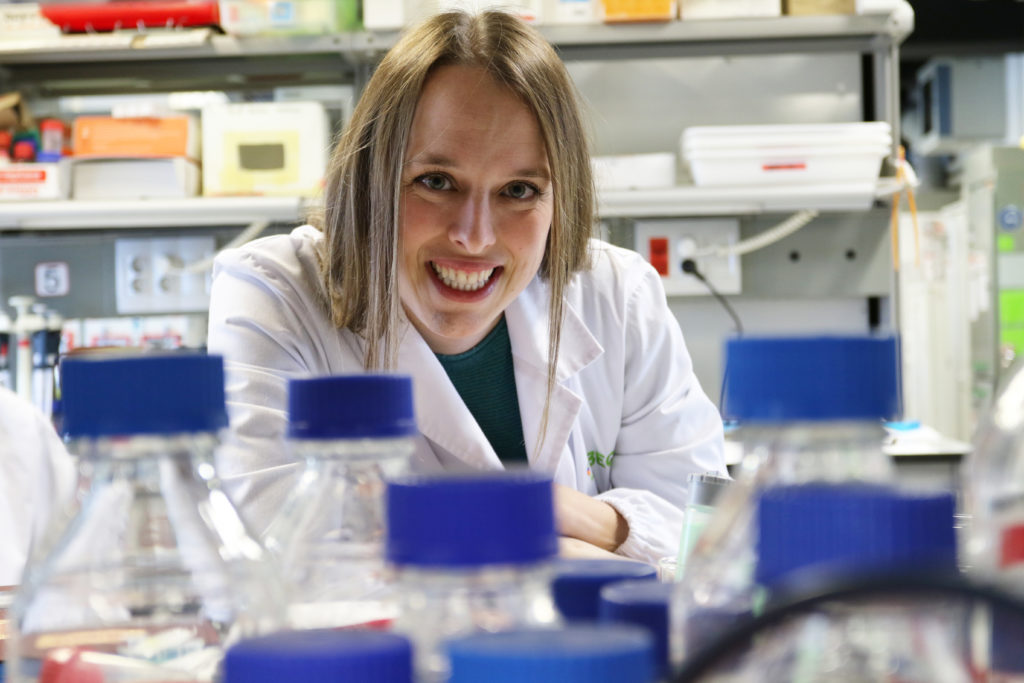
Com triar el millor fàrmac per a cada pacient amb càncer? Irene Marco a BigVan de La Vanguardia
Irene Marco explica a la secció BigVan de La Vanguardia com gràcies a la microfluídica i a la investigació basada en l’ús de dispositius “organ-on-a-xip” es pot donar un pas endavant cap a la medicina personalitzada.
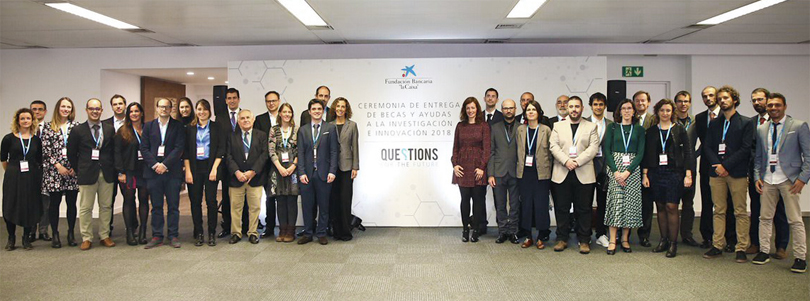
Cinc investigadors de l’IBEC guardonats en la cerimònia de les beques “la Caixa”
Cinc investigadors de l’IBEC van rebre ahir les beques de “la Caixa” a les convocatòries de recerca i innovació. Anna Labernadie i Irene Marco, estudiants postdoctorals dels grups de l’IBEC Integrative Cell and Tissue Dynamics i Biosensors for Bioengineering, respectivament, han obtingut les beques de la primera convocatòria del programa Junior Leader de “la Caixa”, que ajuda investigadors i investigadores destacats, de qualsevol nacionalitat, que vulguin continuar la seva carrera de recerca en territori espanyol o portuguès. L’Anna ha estat una de les 10 estudiants postdoctorals en aconseguir una beca de la modalitat “Retaining” per a candidats que ja resideixen a Espanya, i la Irene ha estat guardonada amb una de les 20 beques de la modalitat “Incoming” per a candidats residents a l’estranger.


 ibecbarcelona.eu
ibecbarcelona.eu